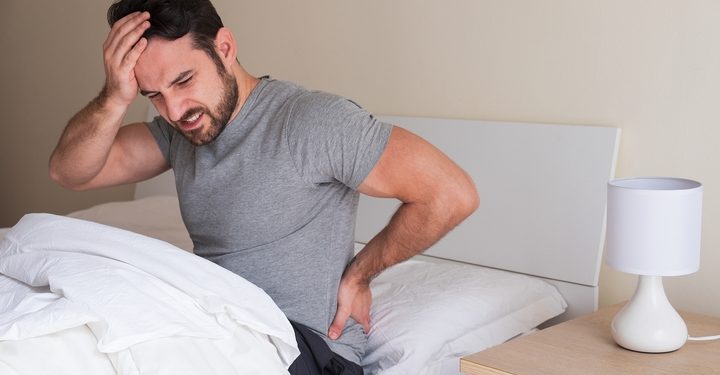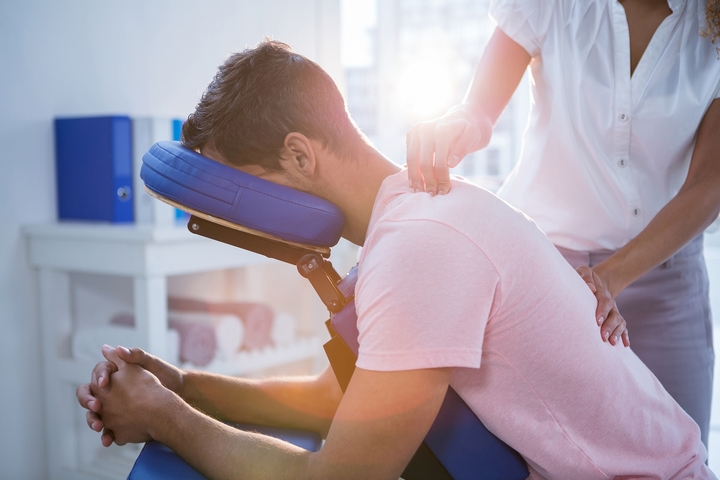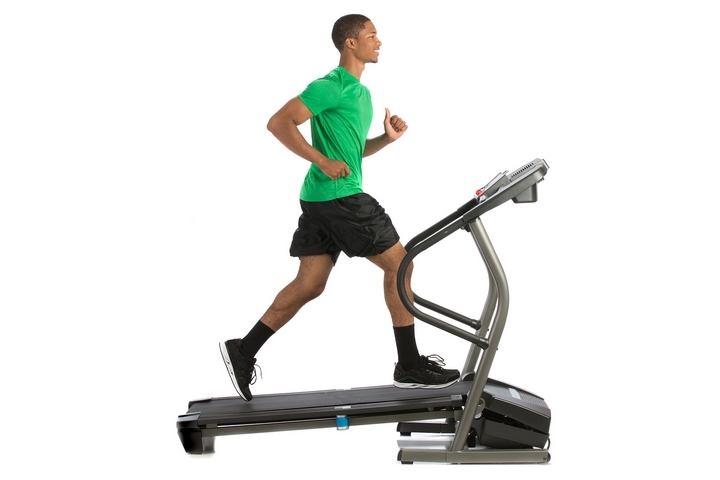9 Remedies on How to Sleep with Upper Back Pain

It is hard getting through the day with back pain. It is even harder to sleep with back pain. Yet, it is important that you sleep well to promote overall good health and well-being. Back pain will make you toss in your bed looking for the best sleeping position. Your sleeping and rising become a painful affair. If you cannot get adequate sleep due to back pain, here are 9 remedies on how to sleep with upper back pain:
1. Adopt the Right Sleeping Position

In order to sleep with upper back pain, choose a sleeping position that does not strain your back. In any case, support your back with a pillow or towel by either placing it under your knees if you sleep on your back; or in between your knees if you sleep on your side.
Avoid sleeping on your stomach since this sleeping position strains your back the most. If you must sleep on your stomach, put a pillow under your stomach to ease the pressure on your back. Another thing; many people suffer from back pain due to Flu attacks. You could save yourself a lot of trouble by getting a flu vaccination every year.
2. Get Yourself the Right Mattress

Picking the right mattress is key to sleeping with upper back pain. Different body types require different types of mattresses. Unlike what doctors have traditionally recommended, a firm mattress is not necessarily a solution to back pain. While people with ‘flat’ waists and hips find hard mattresses comfortable, those with wide curvy hips find a softer mattress more comfortable. Carefully chose the type of mattress that suits your body shape. The ideal mattress is one that helps you sleep comfortably.
3. Be Careful When Getting In and Out of Bed

If you have a certain health challenge, be gentle on your body. Take care and avoid making quick jerky movements, or bending forward at the waist. Such moves will cause you more pain. Put the least pressure on your back both when you sleep and when you wake up. Adopt other ways such as rolling and using your hands to ease the pressure on your back.
4. Massage Your Back

A good hot or cold massage just before bedtime can ease your upper back pain if the pain is mild. To soothe muscle irritation and swelling, it is advisable you use heating pads and ice packs alternately. The goal is to relieve pain and get you to sleep soundly. This is a simple, albeit short-term fix.
5. Physical Therapy

If your back pain is severe, you will need to see a doctor. Whatever recommendation you get, follow it. This may include physical therapy, which helps to heal injuries and weak joints while at the same time strengthening your back to prevent re-injury.
6. Remove Stress

There are aspects of our lives that could aggravate stress. Tension usually accumulates in the upper back, causing pain in that area. Whether it’s your job or a difficult time at home, try to address these stressors and, where possible, find ways of avoiding or getting rid of them. Address the stressors affecting you for better physical, psychological and mental health. Less back pain means better sleep and improved productivity at work.
7. Exercise

Generally, regular physical activity is an important contributor to good health. If you have back pain, be more deliberate in your exercises and target the core muscles. These are muscles in the abdomen, on the hips, lower back and the pelvis. Exercising your core muscles does not only improve your sleep, but it also eases your back pain. The essence of doing these exercises is to strengthen the relevant muscles and make them more flexible. It prevents muscle strain at night and improves your sleep.
8. Yoga Stretches

Yoga exercises just before bed not only relieve or minimize pain; they also improve the quality of sleep by easing stress. Since yoga stretches are not strenuous, anyone one can easily learn the moves.
9. Lifestyle

A healthy lifestyle can reduce back pain and improve your sleep. For instance, if you are a smoker, you may want to quit smoking. You should also warm up first before engaging in strenuous activity. Do not lift heavy objects, and if you must, exercise caution. When standing for prolonged periods, maintain the right posture to avoid straining your back. On the other hand, if you sit in front of a computer for long hours, maintain a 90 degrees posture.
If you have back pain and you want to sleep better, these tips can be very helpful. Start with the simplest and most cost-effective back pain remedies. However, if back pain persists, progress to the more challenging, perhaps even costlier, ones. If one of these methods fail, choose another until you find one that works for you. Otherwise, consult your doctor if the pain persists and if your sleeping pattern does not improve. The doctor will recommend the best approach to help you mitigate back pain and ensure better sleep.


